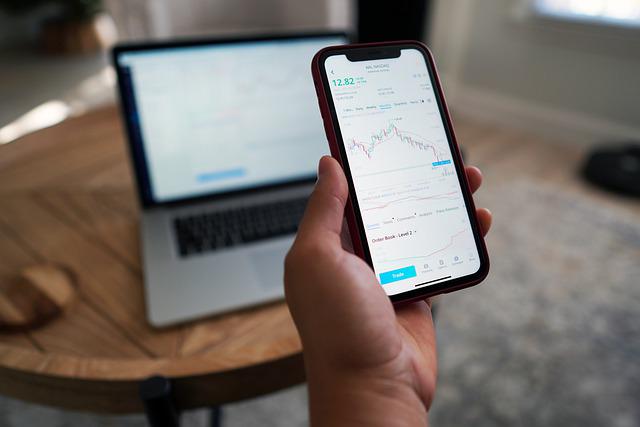
Disciplined Traders – A Beginner’s Handbook
Author: Paul Lange – Part I/III
For the next few days, I will be looking at things that disciplined beginning traders should know as they start this business. Don’t be surprised, however, if some of you moderately experienced to very experienced traders don’t find a few interesting tidbits, even if they serve as nothing more than a review.
Are you New to trading?
Welcome to trading. Are you new to this field? Or is it called online stock buying? Is it day trading? Or is it investing? Well, let’s get a few terms straight. This will be the first of a three-part series, “A Beginners Handbook”.
First, for a long long time, I have considered the term ‘buy and hold’ something that is no longer a term that should be applied to the stock market. You should feel this way also. Do this if you like in real estate, bonds, or gold, but not stocks.
It implies a long-term buy-and-hold with your eyes closed approach that should no longer be used in the stock market. The term ‘investing’ is fine as long as it does not mean ‘buy and hold’.
There is nothing wrong with long-term holds. I believe in swing trades and core trades that could last for months or years in some cases.
However, they are ‘managed’. As traders, we do not close our eyes hoping all will be all right. Traders are educated in technical strategies and discipline. They become self-sufficient.
Self-sufficient, Disciplined Traders
What does Disciplined Trading mean? Among other things, it means not relying on other’s people’s opinions or wonderful news sources, once they know what they are doing.
A lot of today’s large-cap companies are in the technology area. These companies are subject to having their main product replaced by a new technology very easily. Long ago, it required many years for any company to start up a new car company and overtake General Motors.
Today, anyone can create software in their garage that can revolutionize how something is done and put a competitor out of business. The list of companies this happened to is endless. The rule is ‘change or becomes extinct’.
This example is found over and over again in everything from video sales to computer chips. It will not end in the lifetime of anyone reading this.
‘buy and hold’ vs. long-term trading
When practicing ‘buy and hold’ (as opposed to long-term trading), you are relying on news and announcements and fundamental data. Many of you have probably already discovered how worthless this process is. You never take the news or information at face value.
So if ‘buy and hold’ is out, what do we do? You hear stories all the time about all of the ‘day traders’. Then, you look around you and you don’t see many. You may not even know any besides yourself and those you met at a seminar or expo.
Unfortunately, the term ‘day trading’ is often misused. There is a large group of people that we call ‘online investors’. These are the folks that use their computer rather than consulting a broker or consultant.
They are typically managing their savings or IRA money, and are typically untrained. Same, they always multiply exponentially during the later part of bull market runs. They all but disappear after major market corrections.
Traditional Or Online Trading?
We consider ourselves ‘traders’, whether buying and selling during the day or for the longer term (or anywhere in-between). Traders use technical analysis to find, enter, and manage trades. That applies to long or short-term trades. Those that are focused on trading and exiting by the end of the day are called day traders.
Day Traders
Day traders are people who spend a good part of the day in the market. Those who are trained to manage positions that may last from several minutes to several months. Holding stocks for ‘days’ is commonly called swing trading, and holding for weeks/months is called core trading.
While a core position may last for weeks to months (or years), it differs from investing because there is an exact entry and exit strategy based on technical analysis planned for a core position.
Just like swing trading also relies on specific technical strategies for entry and exit. Exiting when down 10% is not a strategy. It is a last-ditch money management concept.
how does a disciplined trader buy stocks?
If you are going to trade, this is the million-dollar question: How do you buy stocks?
If you are trading only a few trades a week and limiting yourself to swing and core trades, using one of the ‘online brokers’ is fine. The time it takes to have your order filled may not be that fast, but for occasional long-term trades, it is acceptable. If you are going to be trading more often, or trading in and out the same day, you will want to use a ‘direct access’ broker.
This is a broker that lets you see all of the market participants, where they are buying, and where they are selling. You then place your own order on your computer screen and many of these orders will have instant executions. By instant, I mean instant, usually within a fraction of a second.
So, as a disciplined trader, you know what you want to do, and you have selected a broker. Now you need a computer and an Internet connection. Again, for occasional swing and core trading, any machine that can access the Internet will do. If you are going to be active intraday, you will need to have something better.
You will need a computer that is competitive with the current top-of-the-line computer or is at least current with the technology within the last 12-24 months.
You will want a fast Internet connection. Most people today have sufficient internet due to Cable, FIOS, and Satellite. You will need to have a working knowledge of computers, as your time with the computer will be extensive whether you want it to be or not.
…Or have a friend close by
So now you are ready to trade, right? Well, no, not really. The biggest distinction I made earlier was that ‘day traders’ are educated in trading strategies and disciplines. This will be the focus of the next Lesson, how to start out trading when you have no education or experience in trading. I will discuss how to build that education as you go, without using up all of your capital.
There is perhaps no greater occupation to have than that of a professional trader.
Yet, few achieve that title. Few achieve, even though thresh hold is not that high. In terms of cost and preparation, almost anyone is capable. You have to set yourself apart and be different. That is part of what we will talk about next time.
– Paul
